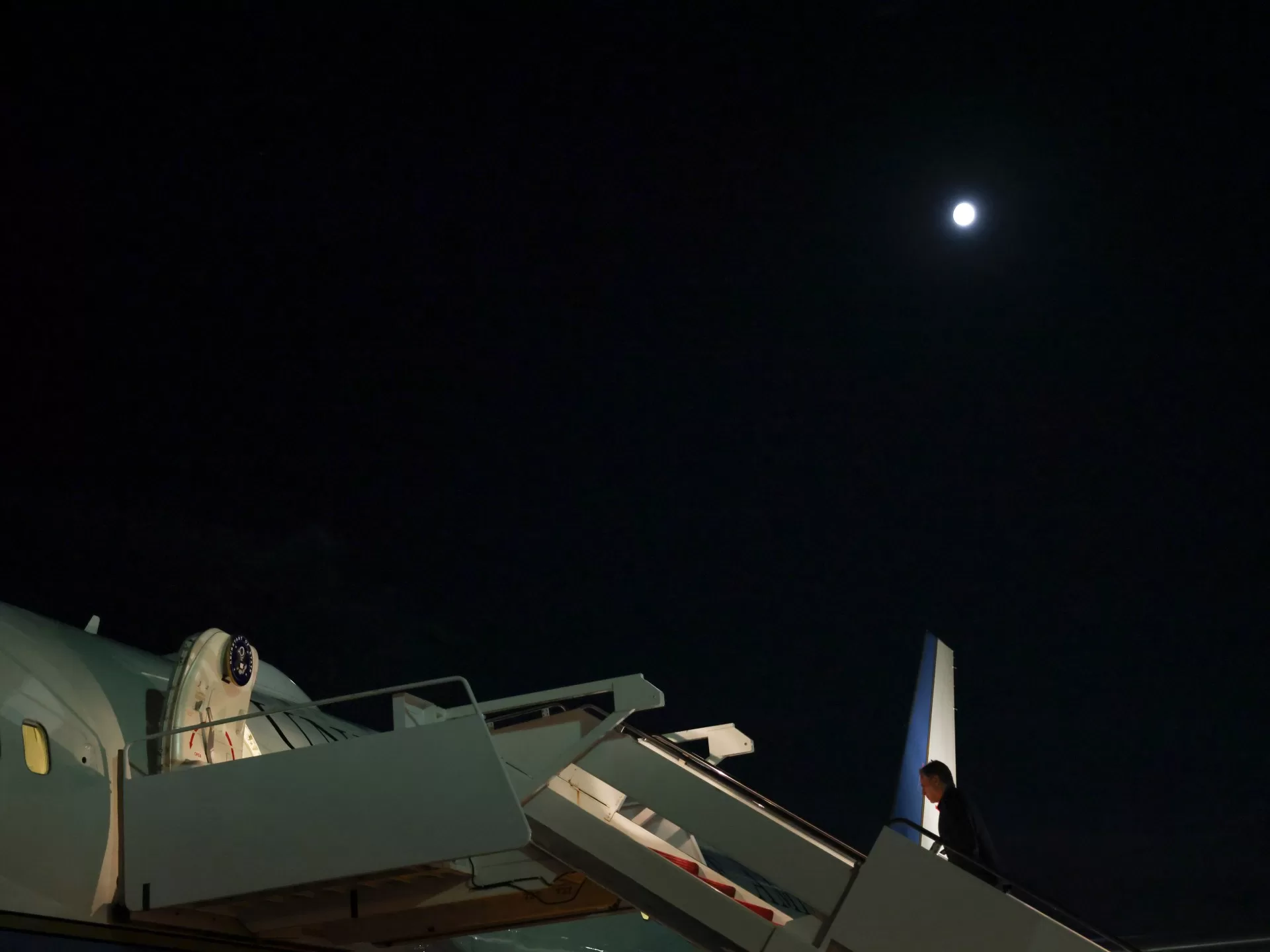The United States’s top diplomat is visiting Israel as part of Washington’s efforts to secure a ceasefire in Israel’s war on Gaza, but statements published by both Hamas and Israel have been dampening the chances of a breakthrough.
Secretary of State Antony Blinken arrived in Israel on Sunday, days after the US put forward proposals that it and mediators Qatar and Egypt believe would close gaps between Israel and Hamas. Truce talks are expected to resume in Cairo in the coming days after two days of negotiations in Doha this week.
Mediators have said they presented a bridging ceasefire proposal to both sides and that negotiations were making progress, but they also cautioned that there is still work to be done.
In Israel, Blinken is expected to meet Israeli Prime Minister Benjamin Netanyahu and other senior officials.
Blinken will then head to Egypt on Tuesday, the State Department said.
Hamas said in a statement Sunday that the group remains committed to a plan announced by US President Joe Biden in late May and called on mediators to oblige Israel to implement the proposal.
However, the Palestinian group made clear that it was opposed to what it says it has briefed on about the deal under discussion at the talks held in Doha last week.
“The new proposal responds to [Israeli Prime Minister Benjamin] Netanyahu’s conditions and aligns with them, especially his rejection of a permanent ceasefire, a comprehensive withdrawal from the Gaza Strip, and his insistence on continuing to occupy the Netzarim Junction, the Rafah Crossing, and the Philadelphi Corridor,” the statement said, in reference to areas Israel has occupied in Gaza.
“He also set new conditions in the prisoner exchange file, and backed down from other items, which prevents the completion of the exchange deal.”
“We hold Netanyahu fully responsible for thwarting the mediators’ efforts, obstructing reaching an agreement, and fully responsible for the lives of his prisoners who are exposed to the same danger that our people are exposed to, as a result of his continued aggression and systematic targeting of all aspects of life in the Gaza Strip.”
The Israeli Prime Minister’s Office meanwhile insisted in a statement Sunday that Israel would not back down from its requirement that any ceasefire deal needs to allow it to continue its war on Gaza, despite repeated US statements that the deal would lead to an end to the conflict.
“Even today, the Prime Minister insists that we remain in the Philadelphia axis to prevent the terrorists from re-arming,” it said.
“The Prime Minister will continue to promote a deal that will maximise the number of abductees alive and that will enable the achievement of all the war’s goals.”
Regional tensions
“Hamas has learned from the past that every time they were closer to a deal and everyone would think it was within reach, the Israelis would do something different, like committing atrocities, targeting or assassinating a leader,” Hassan Harari, a professor of international affairs at Qatar University, told Al Jazeera.
Among the sticking points are conditions that Israel added since the United Nations Security Council adopted a resolution on the proposal outlined in May – including continued Israeli presence on the Philadelphi Corridor separating the Egyptian region of Sinai from the Gaza Strip, and the establishment of checkpoints to monitor the movement of people from south to north.
“Netanyahu is procrastinating to make it tough for Hamas to agree,” Harari said. “But also from the Israeli perspective, there are some circles who believe these demands are legitimate.”
The discussions will also include the list of captives’ names to be released in Gaza, the list of Palestinian prisoners to be freed, and the schedule for their release.
“No doubt [Blinken’s] largest challenge is likely to be to convince the top level of the Israeli government, Netanyahu in particular, to be more flexible with regards to their demands when it comes to this deal,” said Al Jazeera’s Zein Basravi.
“There is a great deal of negativity from a number of experts, from people here on the ground with regards to the success of this deal, because they say what the US and Israel are doing is creating a sense of cautious optimism while shifting the goalpost and shifting the blame on Hamas for not agreeing to a deal,” Basravi added, reporting from Amman, Jordan due to Israel’s ban on Al Jazeera.
Al Jazeera’s Hamdah Salhut also reporting from Amman, Jordan, said that this will be Blinken’s 10th meeting with Netanyahu in Israel since the war began.
“Israel is still bracing for some sort of retaliatory attack by Iran, by Hezbollah, by perhaps the Houthis in Yemen. The US has been the most vocal, saying that a ceasefire deal could be the thing to calm regional tension,” she said.
“But the Israeli premier has said throughout the entirety of this war of more than 10 months that in the face of whatever pressures, even if it is from allies in the United States, Israel will still prosecute the war however they see fit.”
Hamas as well as some analysts and Israeli protesters have accused Netanyahu of hamstringing a deal to safeguard his hard-right ruling coalition.
“We have a prime minister that is not so much willing to release the hostages, to finish the war, because he has he own interests,” Yossi, a 53-year-old protester in Tel Aviv, told the AFP news agency.
Negotiations are unfolding under the threat of a regional escalation, with Iran pledging to retaliate against Israel following the assassination of Hamas leader Ismail Haniyeh in Tehran on July 31.
Meanwhile, in Gaza, Israel’s deadly attacks continue, with nearly two dozen people killed overnight and into Sunday – including a family of eight. This week, the death toll from Israel’s bombardment in the Gaza Strip reached 40,000, according to Palestinian health authorities.
